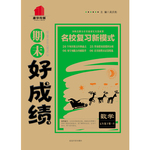题目内容
The Beijing government has set out to recruit thousands of university graduates to work as junior officials in rural areas to both improve rural administration and ease the city's employment problems.
The government plans to recruit 3,000 university graduates this year, 1,000 more than last year, to work as assistants to village heads or Party secretaries in suburban areas.
People interested in jobs in Beijing's rural villages and townships can submit applications to the Beijing Municipal Personnel Bureau or online at www. bjbys, com from February 1 through March 15.
"We hope university graduates will seize this opportunity to use their knowledge in rural villages and to start their careers," Sun Zhenyu, deputy director of Beijing Personnel Bureau, told Xinhua News Agency.
The government has promised successful candidates a monthly salary of 2,000 yuan( $ 250) in the first year, 2,500 yuan ($ 320) the second year and 3,000 yuan ($ 385) the third year, provided their performance is up to the required standards, Sun said.
Wang Lina, who graduated from Beijing Union University last year, was one of the first graduates to find work in the city's countryside. After majoring in industrial and commercial administration, Wang served as the assistant to the village head of Ertiaojie Village in suburban Beijing’s Pinggu District. For one project, Wang contacted people at the Beijing Academy of Agricultural Sciences and arranged for the local farmers to receive training in strawberry planting. Her efforts paid off. The village had a plentiful harvest of organic strawberries earlier this year.
Nationwide, about 150,000 university graduates found employment in rural areas last year, according to figures provided by the Ministry of Education.
The ministry predicts that 4. 95 million students will graduate from universities across the country this year, 820,000 more than last year. About 1.4 million of them are unlikely to find jobs when they graduate.
In Beijing, a record 200,000 people are expected to graduate from university this year. Less than half of them are expected to be offered jobs, according to the personnel bureau.
- 1.
The underlined word "recruit "in the first paragraph probably means_____________.
- A.employ
- B.force
- C.encourage
- D.train
- A.
- 2.
We can see from the passage that_______________.
- A.once you are hired as a junior official, you can get an endlessly rising salary
- B.the government guarantee a relatively high salary for the successful candidates
- C.working as junior officials is easy but very meaningful
- D.the competition for the job as junior officials is very fierce
- A.
- 3.
From the story of Wang Lina we can learn that________________.
- A.the sooner you go to the countryside, the sooner you will be successful.
- B.local farmers can get big harvests if they learn more knowledge.
- C.university graduates can also realize their value in rural areas.
- D.Wang had great difficulty in helping villagers planting organic strawberries.
- A.
- 4.
The last two paragraphs aim to tell us that________________.
- A.more and more graduates will work as junior officials
- B.the universities should not have so many students
- C.there are more and more graduates in recent years
- D.it is not easy for graduates to find jobs nowadays
- A.
- 5.
Which of the following can be the best title for this passage?
- A.Go to the countryside.
- B.Job hunting for university graduates.
- C.What is the best career?
- D.A good choice for university graduates.
- A.
1.文章开头说北京市政府开始推出招聘大学生当村官,这是全文的主旨。以及第二段也重复使用了这一词。所以它的意思是“employ”
2.从文章第五段可知。
3.从第六段最后两句可以判断出她的努力有力收获,没有白费。
4.最后两端道出了今年北京大学毕业生人数之多,但是找不到工作者今一半。所以这说明大学生现在找工作难。
5.纵观全文及新闻题材的特点,第一短文主旨段落。所以答案是A。D项不如A直接明了,吸引读者。

 期末好成绩系列答案
期末好成绩系列答案 99加1领先期末特训卷系列答案
99加1领先期末特训卷系列答案 百强名校期末冲刺100分系列答案
百强名校期末冲刺100分系列答案 好成绩1加1期末冲刺100分系列答案
好成绩1加1期末冲刺100分系列答案 金状元绩优好卷系列答案
金状元绩优好卷系列答案
| |||||||||||||||||||||||||||||||||||||||||||||||||||||||||||